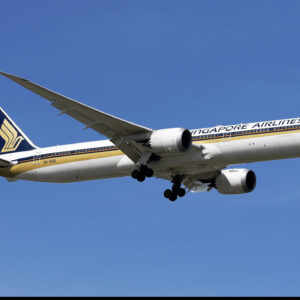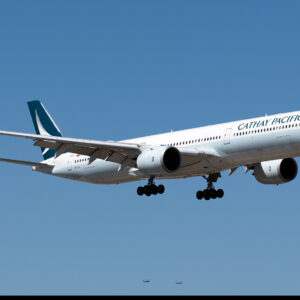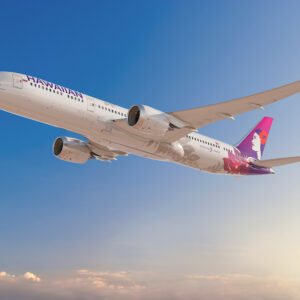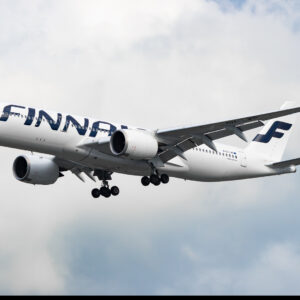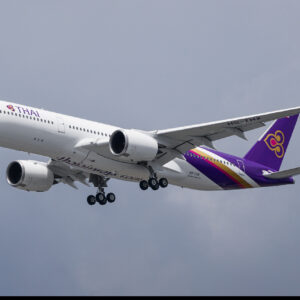Preparing to impress recruiters at your cabin crew interview can be stressful. But fear not – we’re here to guide you through every step, from pre-interview preparation to the interview itself and following up afterward. With our expert advice, you’ll be ready to secure your spot in no time.
Things to do Before the Interview
1. Research the Airline
Take the time to familiarise yourself with the airline you’re interviewing with. Understand their values, service standards, fleet, routes, and any recent news or developments. Tailor your responses during the interview to align with the airline’s brand and culture.
2. Review the Job Description
Carefully review the job description for the cabin crew position you’re applying for. Take note of the key responsibilities, qualifications, and skills required for the role. Prepare examples from your own experience that demonstrate how you meet these criteria.
Related: A Comprehensive Guide to Cabin Crew Job Description
3. Practice Common Interview Questions
Prepare responses to common interview questions that are likely to be asked during a cabin crew interview. Practice answering questions about your relevant experience, strengths and weaknesses, teamwork skills, and how you handle challenging situations. Be ready to answer questions such as “Tell me about yourself,” “Why do you want to work as cabin crew,” and “How would you handle a difficult passenger situation?”
Related: 32 Cabin Crew Interview Questions and Answers: A Complete Guide
4. Enhance Your Language Skills
If you’re applying for a cabin crew position with an airline that operates in multiple languages, consider brushing up on your language skills. Proficiency in additional languages can be a valuable asset in the aviation industry and may increase your chances of being selected.
Things to do During the Interview
1. Dress Professionally
Make a positive first impression by dressing in professional attire that reflects the image of a cabin crew member. Opt for well-fitted, conservative clothing in neutral colours and ensure your grooming is impeccable.
For women, a tailored suit or dress with minimal jewellery and natural makeup would convey professionalism and attention to detail. For men, a suit with a tie, polished shoes, and neatly groomed hair would exude confidence and professionalism.
2. Showcase Your Skills
Highlight your relevant skills, experiences, and qualities that make you an ideal candidate for the cabin crew position. Be prepared to discuss your customer service skills, problem-solving abilities, teamwork, adaptability, and resilience.
Example: When asked about a challenging situation you’ve faced in a previous job, share a specific example where you remained calm under pressure, addressed the issue effectively, and prioritised passenger safety and satisfaction.
3. Demonstrate Cultural Awareness
Show sensitivity and cultural awareness during the interview by recognising and respecting the diversity of passengers you may encounter in your role as cabin crew. Emphasise your ability to adapt to different cultures, customs, and communication styles.
4. Highlight Your Safety Focus
Emphasise your commitment to passenger safety and adherence to safety protocols during the interview. Showcase your knowledge of emergency procedures, evacuation protocols, and your ability to remain calm and composed under pressure.
Example: When discussing your previous experience, highlight any training you’ve received in emergency procedures, first aid, or safety management systems. Emphasise your willingness to prioritise passenger safety above all else.
Things to do After the Interview
1. Send a Thank-You Email
After the interview, send a personalised thank-you email to express your gratitude for the opportunity to interview. Reiterate your interest in the position, highlight key points discussed during the interview, and reaffirm your enthusiasm for joining the airline.
Example: “Dear [Interviewer’s Name], I wanted to thank you for taking the time to interview me today for the cabin crew position at [Airline Name]. It was a pleasure to learn more about the airline’s commitment to excellence in service and safety…”
2. Follow Up
Follow up with the airline if you haven’t heard back within the expected timeframe. Send a polite email or make a phone call to inquire about the status of your application and express your continued interest in the position.
Example: “Dear [Hiring Manager’s Name], I hope this email finds you well. I wanted to follow up on my recent interview for the cabin crew position at [Airline Name] and inquire about the status of my application…”
3. Reflect on the Interview
Take some time to reflect on your performance during the interview. Identify areas where you excelled and areas where you could improve. Use this feedback to refine your interview skills and prepare for future opportunities.
4. Continue Networking
Stay connected with professionals in the aviation industry and continue networking even after the interview. Join online forums, attend industry events, and connect with current cabin crew members to expand your network and stay informed about job opportunities.
Example: Reach out to professionals in the aviation industry via LinkedIn or attend industry conferences and networking events to build relationships and learn more about career opportunities in cabin crew.
Conclusion
Preparing for a cabin crew interview requires careful research, preparation, and professionalism. By following these steps before, during, and after the interview, you can maximise your chances of success and secure your place among the clouds. Subscribe to our newsletter today for more insider tips, career advice, and exclusive opportunities to embark on your journey as cabin crew.
Latest Cabin Crew jobs
Explore the latest Cabin Crew job opportunities with leading airlines.



